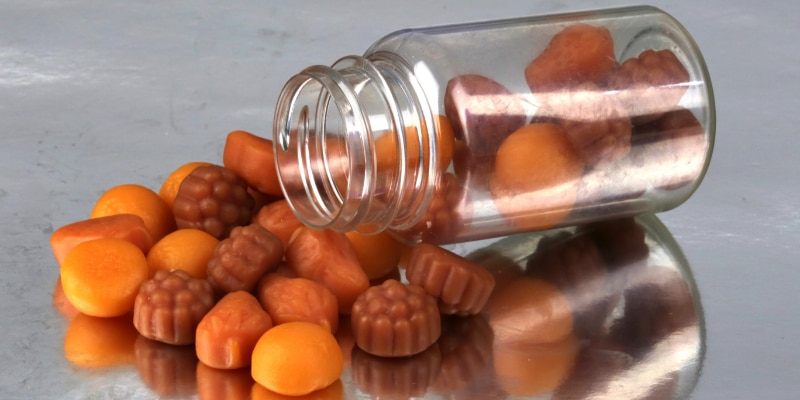by Melissa Chichester
That’s kind of a trick question. Here’s the easy answer: ubiquinol is the most common form of CoQ-10 found in the body. It is the active form of CoQ-10 that fights free radicals by providing antioxidant support.* But that’s not all ubiquinol can do. The truth is, we need ubiquinol to thrive.
Since ubiquinol levels in the body peak by age 20 and decrease by up to 50% in different parts of the body by age 80, it is important to ensure we receive this nutrient in food or supplements. Unfortunately, the average dietary intake of ubiquinol is only about 3-5 milligrams per day. Here’s why you need ubiquinol and how you can consume more of it.
Ubiquinol was researched for 10 years before it was introduced as a supplement. As the most absorbable form of CoQ-10, ubiquinol increases serum levels of CoQ-10 110% more than regular CoQ-10 supplements.1*
1Compared to standard, unmodified ubiquinone.
To improve absorption, ubiquinol is usually delivered in softgel form instead of powdered capsules. It is best taken with a meal.
Looking for a ubiquinol supplement? Here are a few to choose from:
>>Shop all ubiquinol supplements
Ubiquinol plays a key role in energy production at the cellular level. Energy is produced when regular CoQ-10 and ubiquinol are converted back and forth through a cellular conversion process. If this sounds confusing, think of ubiquinol hanging out in the mitochondria, keeping the fire going. And it’s so important that it is found in almost every cell in the body.*
Although ubiquinol helps the body produce energy, it isn’t the same kind of energy that you get from sugar or caffeine. This is natural energy that supports high-energy organs such as the heart. Plus, ubiquinol accounts for approximately 80% of the CoQ-10 in the intestines and liver. Ubiquinol also plays a role in helping the body convert food to energy.*

Did you know that heart levels of ubiquinol decline approximately 30% from our early 20s to early 40s and by more than 50% in our late 70s? The heart requires a constant supply of ATP energy to transport and pump blood throughout the body. Ubiquinol is necessary to support a healthy heart and cardiovascular system.* It also helps support healthy blood pressure levels already in a normal range.*
Furthermore, you may have heard about ubiquinol and its involvement with statins. Researchers from Columbia University found a significant decrease in blood CoQ-10 levels in patients taking statins after 30 days – a 51% decrease. Statins can reduce CoQ-10 levels in the body. Ubiquinol as CoQ-10 can replenish what statin medications may deplete.*
Note: Coenzyme Q-10 and ubiquinol are not intended to serve as a replacement for statin therapy, nor should you discontinue taking any prescribed medications while supplementing with Coenzyme Q-10 or ubiquinol.
>>Housekeeping Your Heart Health
To function as an antioxidant, regular CoQ-10 supplements must be converted in the body to ubiquinol. Ubiquinol is a lipophilic antioxidant that helps fight free radicals in the body.* This means that it easily dissolves in fats. Antioxidants help neutralize free radicals. Free radicals can cause oxidative stress, which can damage cells.*
If you want to make sure you are consuming dietary ubiquinol, here are some foods you can find it in:
Frying these foods lessens the ubiquinol content. Plus, many supplements generally contain
more ubiquinol than can be found in one serving of meat or fish. However, it is important to eat a wide variety of foods to not only receive ubiquinol but other essential nutrients.
It’s so frustrating to be going about your day and then being hit with a headache. While ubiquinol supporting headache relief is still being investigated, it is believed to support energy production in the brain which in turn can reduce occasional headaches.* As a result, ubiquinol may help soothe minor headaches associated with temporary stress.*